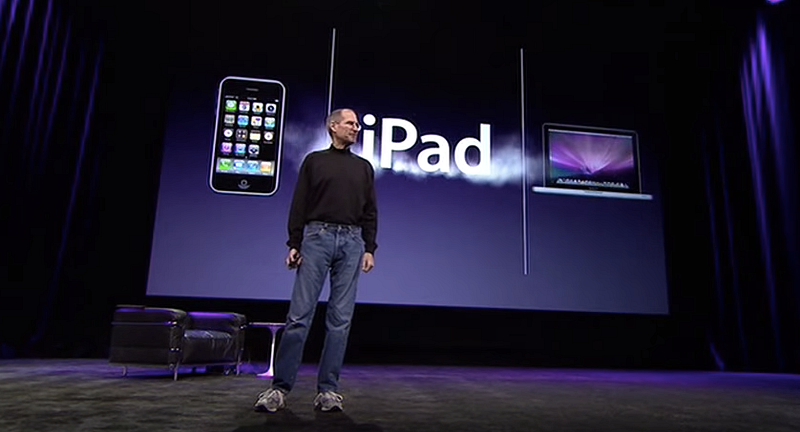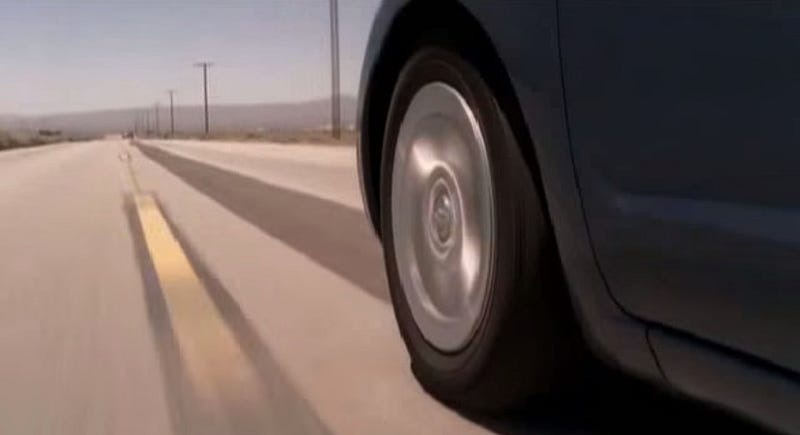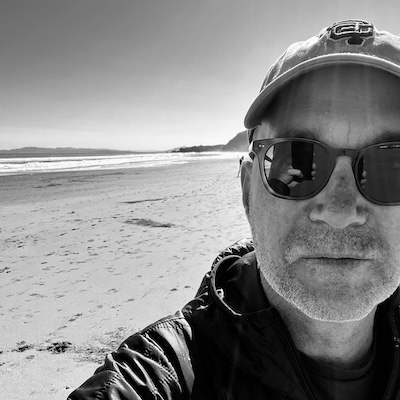there are 4 posts from September 2014
filtered, week of sep 22 2014
This week’s menu: a tasty identity soup. And like last week, we’ll stick with the 10+1 format. Got ideas for me? Leave ‘em in the recommends or add a note anywhere in the story.
- Anil Dash offers 15 lessons from 15 years of blogging. “If you write a bad post or something you don’t like, just post again. If you write something great that you’re really proud of and nobody notices, just post again.” There is nothing more important in blogging / writing / making things than this: just keep making.
- Leah Reich: This is the One that Changes Everything. “These were a few of the words she had heard during her 39 years: complex, different, intense, salty, difficult, amazing.” Leah’s year of Wednesdays has been incredible so far.
- Lauren Zalaznick’s Sunday Paper, September Week 4. “Known to be a lady who has some opinions, it might surprise very few of you to learn that I vote in every election i can get a ballot for. So it might be interesting for you to know that I did turn down the opportunity, for real, to judge the Miss Universe Pageant. I just…couldn’t.” I was lucky enough to meet Lauren once, and holy shit I can not imagine her judging any sort of pageant.
- Amy Davidson on Bill Simmons and ESPN. “In every field of journalism, there are questions of access and the threat that, even if one is in the right, sources will dry up, interviews will be cancelled. … The only way for that not to destroy journalism as an enterprise is for reporters to have, at those moments, true institutional support. ESPN has done the opposite, doing the work of the angry, powerful people whom it covers for them.” I’m missing Simmons in my media diet —Twitter, Grantland, etc., and part of me has to wonder: did he taunt the ESPN execs to come after him because he wants out of his contract? Speaking of Grantland…
- Andrew Sharp on Derek Jeter retiring. “There’s this smug attitude that infects the way we talk about sports, where you’re either clued in enough to know Derek Jeter was overrated, or you’re one of the pathetic people who actually thought he was great. There was no shortage of that perspective with Jeter this week, and it all started to blend together, and it was the worst.” I don’t have an opinion one way or another about Jeter, other than the fact that he played for a team I very much despise, so yeah. He’s an overrated jerk. But wow, last night.
- Helen Lewis on Lena Dunham’s book. “So, this is a confessional book where you cannot be sure if the confessions are true: it’s either a brilliantly ironic subversion of the form, or a deeply wearying put-on by someone who has no sense of who they are when no one is watching.” I don’t think I want to read Dunham’s book, but all the way through Lewis’ (long) review, I was bothered by the fact that she (Lewis) is missing the point, and is making a distinction without a difference. We live with connected cameras: we’re all brilliantly and ironically subverting the form, while simultaneously having no sense of who we are when no one is…hold on, lemme take a selfie. And not post it to…
- Ello. What if the whole thing’s a massive troll / art project, designed to lure the early adopters? I mean, who launches a social network on the web? (BTW, I’m with Jessi Hempel on this one. Like that’s any surprise.) Meanwhile, hand me my phone because it’s my social network: I’ll WhatsApp my brother, tweet my friends, post a pic to my Snapchat story, send a random Talko voice message to a friend back east, find out what’s up with my neighbors on Nextdoor, watch funny shit on Vine and like all my birthday greetings on Facebook.
- Ed Vielmetti wants a random walk through his address book. “My addressbook asks for a random() function. It needs to surprise me from time to time, showing me individuals who aren’t going to show up in a search, but who nonetheless are worthy of remembering right now.” Address books / contact apps aren’t keeping up with capabilities of the network or devices, or the demands that are being placed on them. For example: I’ll posit that it’s a good thing that social apps are asking for access to your local address book instead of relying on a monolithic social graph. However, it’s a bad thing that that same address book is impossible for me to manage / edit / search through / filter into groups. There are glimmers of hope in this space, but just glimmers.
- The Bone Clocks, David Mitchell. You need to be reading this. From Pico Iyer’s review: “It is a typically maximalist many-storied construction: In one of its manifold secret corners, it sounds as if a sublimely original writer is wondering how much ‘writing’s a pathology’ (as one of his characters puts it) and whether it’s possible to conjure up time-traveling characters and scenes from the distant past and future, yet not believe in magic.”
- My phone hasn’t bent in my pocket, I didn’t install 8.0.1. It rained again this week. A good friend is moving to New York; I couldn’t be happier for her. Meanwhile, I turned 46. Look, I don’t know about you, but I’m feeling 22.
This week’s kicker, Jon Stewart on the Fox News coverage of Obama’s “latte salute:” “Fuck you and all your false patriotism.”
Have a great weekend. More stuff next week.
filtered, week of sep 15 2014
I’m going to continue to muck with the format of this thing. Let’s try this on for size: 10+1. Ten good things and a kicker. Because it’s Friday.
- Thursday morning’s rain. The sound of it woke me up at 5am, my wife about a half hour later. “What’s that noise?” she asked. It felt great to run in, walk in, see on the sidewalks, smell in the air… Finally.
- Nick Sweeney on watches, where he gives a fantastically abbreviated history of wrist technology products over the past 100 years (“The 1970s was a decade of genuine transition for the watch industry, where radical styling accompanied rapid changes to the production process, electronics companies momentarily asserted their superiority to traditional manufacturers, and where customers accepted very clear compromises in order to strap the future to their wrists”) and uses it to deliver a crushing critique of Apple’s product and design strategy. No more spoilers; go read it.
- Tim Maly on experiencing context collapse at XOXO. “This is an era of networked wealth, going to scale, first mover advantage, positive feedback loops, virtuous cycles, high concentration, and high disparity. These are some of the intolerable conditions of the time we call (with subversive hope) Late Capitalism.” Tim’s next paragraph is a single word: “We,” complete with scare quotes. Which is perfect. The punctuation matters, because it’s very difficult to draw accurate boundaries around the first person plural. Especially when it comes to the definition of “creators.”
- Nicola Twilley on the taste of spoons. “[Zoe Laughlin] had volunteers lining up to suck on a set of seven spoons that were identical in shape and size, but plated with different metals.” Surprise! Golden spoons taste best. Speaking of which…
- Notch says goodbye to all that. “Thank you for turning Minecraft into what it has become, but there are too many of you, and I can’t be responsible for all that.” I don’t know him from Adam, but there’s sadness and confusion and more than a little bit of regret weaved through his post, and it doesn’t have anything to do with Minecraft now being part of Microsoft. Not quite the typical incredible journey.
- Erotic poetry built from iPhone 6 reviews. Lots of “big hand” jokes, but by Wednesday morning (after the Tuesday night embargo-lift), the not-so-little corner of the Internet obsessed with the 6 needed this. Thank you, Verge. I keep waiting for Kevin Fanning to pull out all the stops and write product reviews disguised as celeb fiction; because the world deserves to know whether Jennifer Love Hewitt is getting a 6 or a 6 Plus…and how it fits in her hands. (Wow, that came out creepier than intended, but yeah.)
- Early Clues Universal API. Warning: inside baseball rabbit hole, to metaphor mix. “The Universal API is open and available to all entities in all realities. Even if an entity’s current reality ‘doesn’t support’ or actively blocks the Universal API, the Universal API still supports that entity.” Because even if it’s fake, it’s real.
- Back to school night, eighth grade science class. Where the teacher explained that the curriculum this year wasn’t about knowledge (“which they can find all sorts of places”) but about process. They’ll be focused on improving their understanding and execution of the scientific method: how to form hypotheses, design experiments to test them, evaluate their results, understand where error comes from and share what they’ve learned with their classmates. “In this class FAIL spells First Attempt at Learning.”
- The bios of this year’s MacArthur fellows. I’ve been ignoring the voice inside my head that says “YOU’VE CLEARLY FAILED IN LIFE” while reading their bios and watching their videos. My favorite so far is historian of science and technology Pamela O. Long whose 2001 book Openness, Secrecy, Authorship “illustrates the complex relationship between authorship and the ownership of intellectual property; the act of authorship simultaneously makes information public — at least to those with access to the text — and asserts the author’s ownership of that information.” Not quite iPhone review fanfic, but it’ll do.
- Six Colors. Jason Snell was the editor of Macworld, and with the recent IDG bloodletting has struck out on his own. He’s smart, funny, a great writer and a true Apple nerd. Have high hopes for this.
And…the kicker. Spend three minutes watching the Ikepod Hourglass being made. It’s like a golden spoon for time.
Have a great weekend. Send me ideas, leave me notes, whatever.
filtered, week of sep 8 2014
In many ways, the work of a critic is easy. We risk very little, yet enjoy a position over those who offer up their work and their selves to our judgment. We thrive on negative criticism, which is fun to write and to read. But the bitter truth we critics must face, is that in the grand scheme of things, the average piece of junk is probably more meaningful than our criticism designating it so.
Anton Ego, of course, via this morning’s edition of Dan Hon’s Things That Have Caught My Attention (go subscribe). I’ve been thinking a lot about criticism v. creation this week, especially with the flood of takes on the Watch.
but first, this.
Matt Webb announced on Tuesday that he and Jack Schulze are shutting BERG’s doors. My line for years has been that Matt and Jack are“sooooper geniuses,” but if the shoe fits… BERG’s thinking inspired and informed entire product categories, through a combination of insightful research, deep thought and creative product design and thinking. Here’s one for you: their Mag+ concept video, produced in 2009 in collaboration with Bonnier. Remember the context: we knew the iPad was coming, but it hadn’t arrived.
Like all great product designers, they criticized the world they lived in by creating things that would make it better.
phonewatch
iPhone 6 ordered this morning easily from store.apple.com, after a lot of “We’ll be back” reloads last night at midnight. (The 6 Plus looks too big for me; how would I run with that?)
As for the watch, I think my bit from last week still stands: I don’t have a compelling reason to buy. (Yet! See take below!) However, I will give Tim Cook credit for fully going there with the “one more thing.” That must have been a powerful moment for the folks at Apple. Three of my fav takes:
- Anil and Paul’s liveblog: “Got the video back. Simulcasting the Chinese translation is a bold statement, but an honest one.”
- Steven Levy: “Apple has been famous for neglecting the powerful and transformative rise of social networks, and now, with its wearable, it is allowing users to create their own little Dunbar-limited covens, ready for connection at an instant.”
- Felix Salmon: “By allowing thousands of different apps on its watch, Apple is buying into the More Is More mindset: make sure that the watch offers something for everybody.”
Also this, from a Twitter conversation about XOXO, Portland, hipsters and pocketwatches:
https://twitter.com/sippey/status/509922034839592961
touch me

The thing I can’t stop thinking about from the Watch keynote was the demo of the different ways you can use the Watch to communicate. Drawing little hearts. Sending your heartbeat. Tapping a message that they’ll feel on their wrist. If you’ve been following the “connected device” market for a while, you’ll recognize some of the early Ambient Device thinking here (hello David & Nabeel): simple, real-time, non-textual ways to communicate over long distance. I have a feeling that we’ll look back and laugh at the thought that we would actually send (or read?) text messages from our wrist; voice could work in the right Dick Tracy-esque context, but touch and heat and vibration and patterns are, in Jony Ive speak, personal and intimate.
Their demo also signals that Apple is getting smarter about social. Of course they’re sitting on a trove of graph data (address book, iMessage, email, etc.), and the dedicated hardware button below the Crown is interesting (see Levy’s take above). But what they demonstrated with the Watch extends the trend in social apps towards simpler communication…
Email → Facebook posts → Tweets → Snaps → Single character(Emoji, Steven, Taco Text, etc.) → Single bit (Yo).
One of my favorite things to do with my daughter when we’re holding hands crossing the street or walking down the sidewalk is squeeze her hand three times: “I. Love. You.” And she always replies with four: “I. Love. You. Too.” A feature like that might not be a reason to buy the Watch, but it could be a reason to love it.
in heavy rotation
Finally watched The Grand Budapest Hotel, and had a very hard time paying attention to plot and dialog because my God the visuals … Rdio’s new app home screen is growing on me: swipe swipe swipe, yeah I haven’t listened to Elliot Smith in a while, perfect … Am stuck at 80% through The Blazing World but I swear I’ll finish it this weekend. The philosophy of it is great, and I love all the art speak identity politics stuff, but could use a tad more plot … I can’t get Kottke’s post on the NFL out of my head … Benedict Evans’ great post on Amazon is worth a read if you’ve made it this far in your week without reading it … Rex Sorgatz’s piece on Ground Zero took my breath away … I listened to the U2 record, it’s awful. Go read @sfj on the subject if you want more … Giants box scores and configuring ESPN app alerts … Speaking of which, I wish I could be in Portland this weekend for XOXO (I had a ticket and everything!) but I’m looking forward to entertaining my visiting parents and watching the Giants take on the Dodgers tomorrow night at AT&T. September baseball? YES, PLEASE.
Have a great weekend.
filtered, week of sep 1 2014
anchors
Assume for a minute that all the readers of tea leaves (and The New York Times) are correct, and Apple will, in fact, introduce an iWatch device on Tuesday. If you compare this to Apple’s major product introductions, the degree of difficulty on this one will be high. Very high.
Over the past 30 years, when introducing each of their major product lines, Steve Jobs would anchor consumer perception by comparing their great new product against some clearly inferior piece of impossible-to-use technology that consumers didn’t know they hated.
- Macintosh was compared to the IBM PC (“1984 won’t be like 1984”).
- iPod was compared to the current crop of MP3 players for the early adopters, and the Sony Walkman for everyone else (“your entire music library in your pocket”).
- iPhone was compared to button-filled smartphones for the early adopters, and regular cellphones for everyone else (“iPod + phone + Internet communicator”).
- iPad was a bit of anomaly in that there wasn’t a clear substitute, but Jobs set the netbook as the straw man comparison, and then positioned the iPad right between the iPhone and the Macbook to create a new product category.

iPad positioning
Anchoring perception of the iWatch by comparing it to existing products you can put on your wrist is going to be very hard:
- They will likely compare the new product to today’s wearables. This may resonate with early adopters, but to me this feels like a straw man. The wearable market (fitness trackers, smart watches) is super early, and I’d argue that the whole category has yet to find a real problem to solve for most consumers. People that don’t have one probably couldn’t come up with a reason to own one.
- And of course they could compare the new product to plain old watches, but the people that are still wearing them on a daily basis probably aren’t doing it just to tell the time. They’re wearing them for fashion, status, nostalgia, etc. A functional comparison of how much better the iWatch is than the watch handed down to you by your grandfather won’t hold water. For an example of how awkward such positioning can be, check out Motorola’s site for the Moto360. “It’s time a watch told you more than just the time.” Oh, really? It’s time? Nice pun.
I’ve watched a bunch of the Steve Jobs product introduction videos this week, and one of the hallmarks of how he presents is how obvious he makes the products seem. “Here’s a thing everyone does; the way everyone does it today is shit; so we made something better, something great. And we think you’re going to love it too.” (Applause.) I have no doubt the iWatch will be an interesting product, but given the current rumors it’s difficult for me to see how it’s an obvious product. That, combined with the lack of a substantial product to anchor perception against makes Tuesday’s introduction must-watch theater.
Sure I had gangsters in space. I’m convinced as soon as they’ve established valuable minerals that can be mined in space, there will be gangsterism in space. I irritated NASA a great deal because I brought out things they will be doing in space one of these days.
Chester Gould, in an excellent history of Dick Tracy, who apparently went to space at some point in the series. Must have missed that.
I’m working on a story about congressional oversight of drone strikes that can present a good opportunity for you guys.
Former LA Times / current AP reporter Ken Dilanian, in an email to a CIA press officer.
wolves
If you build software for a living (or otherwise), go read these three posts.
- @rands: The Wolf
- @kellan: “Wolf” narrative considered harmful (also biologically unlikely)
- @codinghorror (from 2004): Commandos, Infantry and Police
Note: wolf PMs (narrative or otherwise) should be considered harmful.
bloggers
Brent Simmons (amazing blogger, not sure if he’s a wolf) wrote this last week:
My blog’s older than Twitter and Facebook, and it will outlive them. It has seen Flickr explode and then fade.
And I had a whole bunch of things to say in response to that, which basically came down to “for me blogging as writing habits > blogging as artifact,” and then Craig Mod came along with This is How We Publish and braindumped a bunch of his thoughts coming out of IndieWeb, about the arguments of why to publish on sites like Medium v. crafting your own home. I’ll quote just one side of the argument to justify what I’m doing here:
If you have a home, why publish elsewhere? Why not put everything on that home to begin with? Simple: To work with new people, to connect to new audiences. To broaden the scale and breadth of your voice. To stand upon the soapboxes that publications offer. To collect dissenting opinions. To see what couldn’t be seen without the help of an editor or gang of skeptics willing to look over your shoulder, pointing you in directions you considered but were too meek to explore. Mainly, to write better and with greater empathy.
And, of course, this:


I cry when I hear the song. It’s Pavlovian. If it comes on when I’m at yoga or something, I’ll cry. I’m always worried people will notice and be like, Oh, is that the girl from the show?
Lauren Ambrose, who played Claire Fisher in Six Feet Under, on Sia’s Breathe Me. I heard it in a coffee shop the other day, and it’s absolutely Pavlovian (even the Four Tet remix). The quote’s from Vulture’s great oral history of the last scene of Six Feet Under, which somehow I missed when it was published last December.
in heavy rotation.
Spoon, They Want My Soul (probably at least 2–3x a week since it came out last month); Peter Gregson, Lights in the Sky (via @robinsloan); Neil Young, Live at the Cellar Door (thanks to a friend who was playing a vinyl copy over the Labor Day weekend). Still making my way through Siri Hustvedt’s The Blazing World (60% of the way through; it didn’t set its hook until about 30%); David Mitchell’s The Bone Clocks (!) is next in the queue.
got feedback?
Leave me a note here, email me, tweet at me, whatever. And I’ll see you next Friday?
